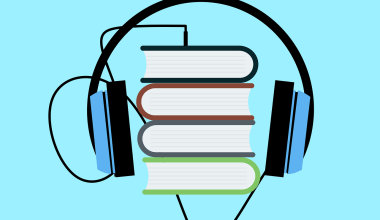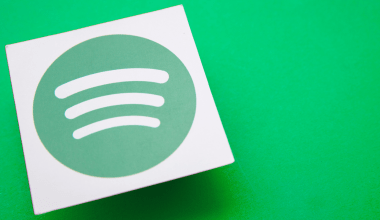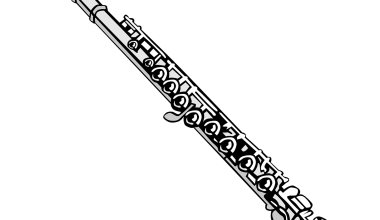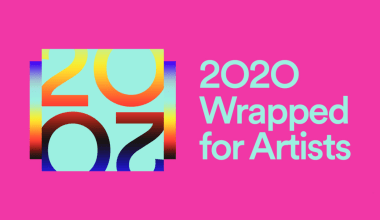Who Is a Publisher in Music?
Ever heard the term “music publisher” but felt confused about what it means? Don’t worry! This guide will break it down for you. A music publisher is someone or a company that helps songwriters and composers get paid when their music is used.
Think of a music publisher as a helper for music creators. They take care of all the boring legal stuff, so creators can focus on making amazing music. Without a publisher, songwriters might not know how to earn money or protect their rights.
In this blog, you’ll learn everything about who is a publisher in music, why they are important, and how they work.
What Does a Music Publisher Do?
A music publisher does a lot of important tasks for songwriters and composers. Here are some of the main jobs they handle:
1. Licensing Music
When someone wants to use a song in a movie, ad, or video game, they need permission. The publisher gives them that permission in exchange for money.
2. Collecting Royalties
Every time a song is played on the radio, streamed online, or performed live, it earns money. The publisher collects this money, called royalties, for the songwriter.
3. Promoting Songs
Music publishers help promote songs to get them noticed by artists, producers, or companies. They may pitch songs for movies, TV shows, or commercials.
4. Protecting Copyrights
A music publisher makes sure no one uses a song without permission. They handle legal issues and keep the music safe.
These tasks may sound small, but they are super important for helping songwriters earn a steady income.
Why Do Songwriters Need a Music Publisher?
Songwriters are creative people who love making music, but they might not know much about legal stuff, marketing, or money management. This is where a music publisher comes in.
Here’s why publishers are so important:
- They make sure songwriters get paid fairly.
- They help the music reach more people by promoting it.
- They protect the music from being stolen or misused.
Without a music publisher, songwriters would have to handle all these tasks on their own, which can be stressful and confusing.
Types of Music Publishers
If you’re wondering who is a publisher in music, it’s good to know that not all publishers are the same. There are different types of music publishers, and each one works a little differently.
1. Major Publishers
Big companies like Universal Music Publishing or Sony Music Publishing. They work with famous songwriters and have a global reach.
2. Independent Publishers
Smaller companies that focus on helping independent songwriters and artists. They offer more personalized services.
3. Self-Publishers
Some songwriters publish their own music. They handle all the work themselves, from licensing to royalty collection.
Each type has its own pros and cons, so songwriters need to choose what works best for them.
How Does Music Publishing Work?
Music publishing might sound complicated, but let’s break it down into simple steps:
- Sign a Deal: The songwriter signs a deal with a publisher. This deal decides how the money will be shared.
- Register the Song: The publisher registers the song with organizations that handle copyrights and royalties.
- License the Music: If someone wants to use the song, the publisher gives them a license in exchange for a fee.
- Collect Royalties: The publisher collects money from all the places where the song is used.
- Pay the Songwriter: After taking a small fee for their work, the publisher gives the rest of the money to the songwriter.
What Are Music Royalties?
If you’re learning about who is a publisher in music, you’ll often hear the word “royalties.” But what does it mean? Royalties are the money earned when music is used. There are different types of royalties:
- Mechanical Royalties: Earned when music is sold or streamed.
- Performance Royalties: Earned when a song is played on the radio, TV, or live.
- Synchronization Royalties: Earned when music is used in films, ads, or games.
- Print Royalties: Earned from selling sheet music.
Music publishers track all these royalties and make sure the songwriter gets paid.
Music Publishing Deals
Songwriters often sign contracts with publishers, called publishing deals. Here are some common types of deals:
1. Full-Publishing Deal
The publisher gets full control of the song and takes a big share of the money. In return, they do all the work.
2. Co-Publishing Deal
The songwriter and the publisher share control and royalties equally.
3. Administration Deal
The publisher only handles the administrative work, and the songwriter keeps full control of their music.
Each deal has its benefits, and songwriters need to read the terms carefully before signing.
Do Independent Artists Need Music Publishers?
Yes! Independent artists can benefit a lot from publishers. While some artists manage their own music, having a publisher can make things easier. They take care of legal work, help collect royalties, and promote the music to a wider audience.
For example, if an independent artist wants their music on platforms like Spotify or YouTube, a publisher can handle the licensing and royalty tracking.
Music Publishers in the Digital Age
With streaming platforms like Spotify and Apple Music, the role of music publishers has become even more important. They ensure that songwriters get paid for streams, downloads, and other online uses.
Modern publishers also use technology to track royalties and prevent copyright infringement. This helps songwriters focus on their craft without worrying about the business side.
How to Choose the Right Music Publisher
If you’re a songwriter looking for a publisher, here are some tips:
- Choose a publisher with a good reputation.
- Look for one with global connections to promote your music worldwide.
- Make sure they have transparent policies for royalty payments.
- Pick a publisher who offers extra services, like marketing or song pitching.
Frequently Asked Questions About Music Publishers
Q1: Can songwriters publish their own music?
Yes, they can, but it takes a lot of work. Self-publishing means handling all the legal and business tasks on your own.
Q2: How do music publishers make money?
Publishers earn a share of the royalties, usually between 10% and 50%, depending on the contract.
Q3: What’s the difference between a publisher and a record label?
A publisher works with songwriters to manage their compositions, while a record label works with artists to produce and promote recordings.
The Future of Music Publishing
The music publishing world is changing fast. Technology like blockchain and AI is helping publishers track royalties more accurately. Publishers are also finding new ways to promote music, such as using social media and digital ads.
For songwriters, this means more opportunities to earn money and reach a global audience.
Conclusion: Who Is a Publisher in Music?
So, who is a publisher in music? They’re the ones who make sure songwriters get paid and their music reaches the world. Whether you’re a new songwriter or an experienced one, working with a publisher can help you grow your career and focus on what you do best—creating amazing music.
If you want your music to shine, a good publisher can be your best partner.
Related Articles:
For further reading, explore these related articles:
- Top 100+ Music Publishing Company Names to Inspire Your Journey
- Music Publishing Basics: The Beginner’s Guide to Making Money with Your Songs
- What Does a Music Publisher Mean? Understanding the Role, Importance, and Benefits of Music Publishing
For additional resources on music marketing and distribution, visit Deliver My Tune.






